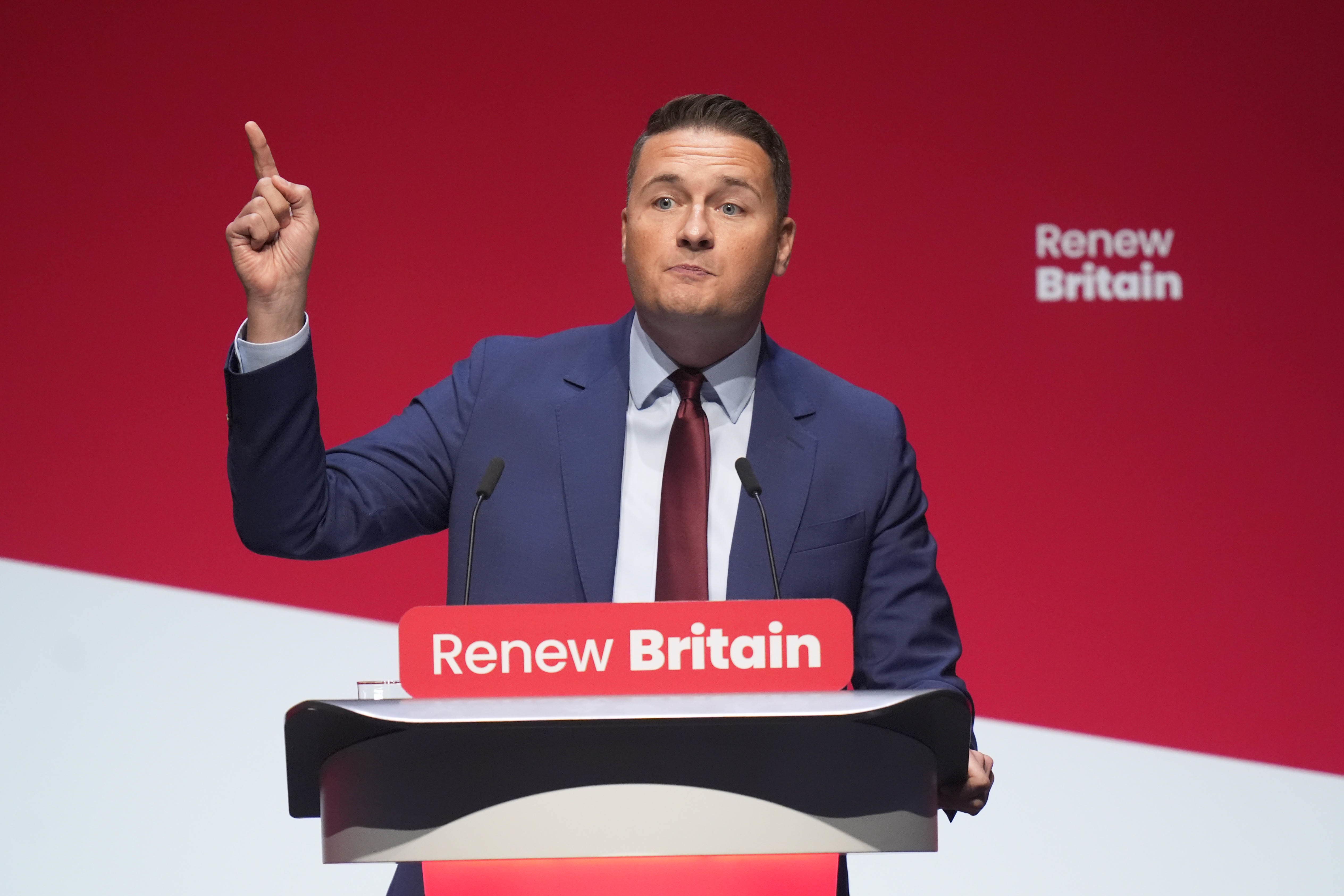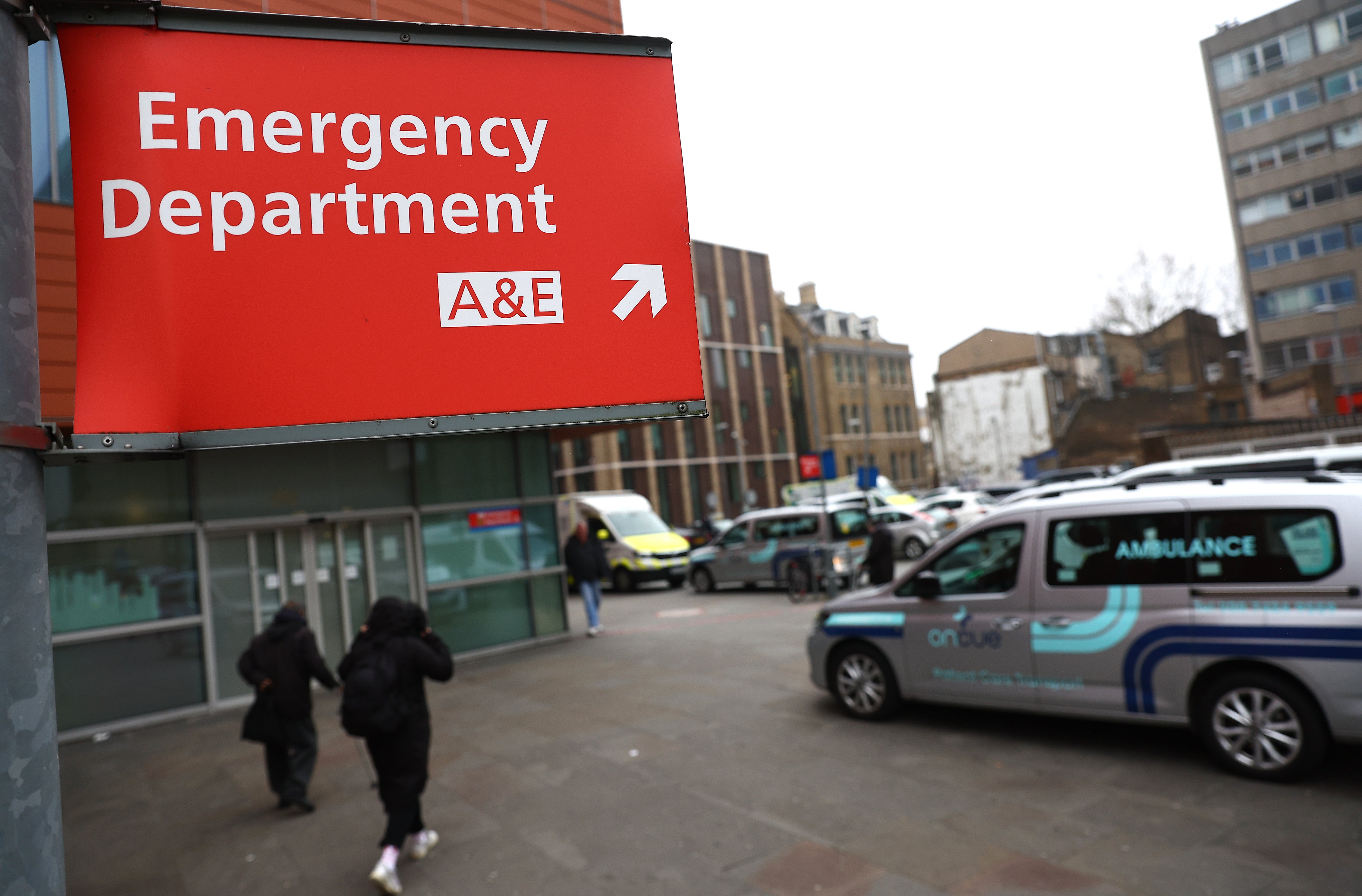As hospital beds fill up, seriously sick patients are sent to makeshift wards – cupboards, offices and corridors – to be treated by a doctor. Others are left languishing in waiting rooms, sometimes for days on end. In one particularly hard-hit hospital, a Costa Coffee cafe is turned into an emergency ward as medics struggle to cope with rising demand.
It’s only October, yet the picture across NHS wards up and down the country is one of concern, with medics telling The Independent they fear a winter crisis on a scale only seen at the height of the pandemic. One A&E consultant warns the health service is facing something akin to “armageddon”.
Every year, the NHS is under huge pressure at winter – a result of longstanding problems, including under-funding and an ageing population. But hospitals are already battling an “astonishing” number of flu and Covid patients this year, in part due to a “hugely concerning” early flu season, alongside a surge in A&E demand and staffing cuts.
On Tuesday, health secretary Wes Streeting admitted the NHS faces a “challenging” winter but insisted it was “already running hot” ahead of the season. But top medics have told The Independent that the government has failed to adequately plan for a potentially devastating few months.
Dr Vicky Price, president of the Society of Acute Medicine, told The Independent: “This winter, I’m more scared than I’ve ever been. We are in a state of dread going into these winter months.”
The concerns come off the back of a “bad” summer, which crippled wards and emergency departments, and has set the NHS up for an even worse few months ahead – even before a planned five-day strike in November, announced by the doctors’ union this week.

Analysis of NHS data by the Royal College of Emergency Medicine, shared with The Independent, shows that from June to September, 500,951 patients had an A&E stay of more than 12 hours from their time of arrival in England. This is more than the entire winter period in 2021-22, during which the UK experienced one of the worst Covid waves.
Dr Price warned that patients were regularly held in corridors during the busy summer months, while hospitals across the country were put in OPEL 4. Previously called black alerts, they are the highest alert level within a hospital, meaning the trust is “unable to deliver comprehensive care” and patient safety may be compromised.
This situation will only worsen as flu cases soar, she said, with hospitals already out of corridor space and forced to treat patients in waiting rooms.
“There’s a real worry here,” said Dr Price. “What we’re hearing is that patients are in corridors. But when you don’t have space in corridors, we’re increasingly seeing patients languishing in waiting rooms [while being treated]. So then you have patients who need to be in a bed [who aren’t] for really long periods of time – as in days – receiving intravenous treatments, then being sent back out to wait in the waiting room.”
‘Like a massive game of chess’
Another senior emergency care consultant, working in the North West, told The Independent their hospital was already running out of corridor space. “I worked the weekend, and I was astonished at how many flu patients we had in,” they said.
Their hospital is also facing soaring numbers of Covid patients, as well as new cases of measles in A&E – all while staff are off sick with a raft of seasonal illnesses.
Figures published by the UK Health Security Agency show cases of Covid significantly rose in September, hitting 3,206 in the week up to 16 October. Meanwhile, flu cases are higher in October 2025 than they have been for the last three years.
Duncan Burton, chief nursing officer for England, said it was “hugely concerning” that flu – which he warned can “spread like wildfire” – had hit earlier this year, with a worrying increase among children.
As a result, NHS trusts are urging staff and patients to get their flu jabs, with data from Australia showing it is struggling with the second-worst flu season for a decade, prompting fears for the UK.
The A&E consultant told The Independent that their emergency department is so packed it’s “like a massive game of chess.”
“We're not just running out of cubicles; we're running out of corridors. And we‘ve run out of trollies,” they said.

“At any given time in my department, we will have more than 50 patients waiting for beds in the hospital as a minimum, and they will wait frequently over 48 hours for a hospital bed. What that means is every cubicle is permanently full and essentially blocked with people that are waiting to be admitted into the hospital.
“It feels like [December and January] is going to be armageddon, to be honest. We are already full.”
Last month, it emerged that patients were left to be treated in a Costa Coffee after an overwhelmed hospital in Kent – the William Harvey Hospital – was forced to turn the cafe into a makeshift ward.
A recent survey by the Royal College of Physicians (RCP) suggests corridor care “has sadly become an everyday reality” for medics, with three in five doctors caring for patients in temporary spaces during this summer.
Dr Price said staff were now being asked to give patients a shorter stint of IV medication so they can send them back out into the waiting room while they’re waiting for treatment to finish.
She added that she was “very concerned” about the number of makeshift wards that have “popped up under various spaces under different names, which are just a way of getting people ‘off the clock’.”
“Off the clock” is a colloquial term for when a hospital can stop measuring the time a patient is waiting for hospital admission, thereby effectively fudging the figures.
‘Financial squeeze’
Clinicians have also warned that doctors' shifts are being cut due to the “financial squeeze” on the NHS, warning this will be a “disaster” for hospitals who will not have enough staff to cope with pressures.
The same A&E medic told The Independent that cost-cutting within their trust has meant cuts to doctors’ shifts within the emergency department. Doctors across the country have also reported “recruitment freezes” and shifts being cut within emergency departments.
Dr Helen Neary, the British Medical Association consultants committee co-chair, told The Independent: “We’ve got an absurd situation, not just in emergency departments, but across the board, where it’s clear more doctors are needed to treat a rising number of patients, but we’re hearing of trusts being told they cannot spend any more money on staffing.
“This can mean recruitment freezes, reduced overtime on offer, or even worse: job cuts. In the short-term, as we approach winter, this is obviously disastrous.”
‘Missed the boat’
Meanwhile, experts have hit out at the government’s planning ahead of winter, with particular concerns about Christmas, during which NHS services often drop to a minimum.
Dr Ian Higgins, president of the Royal College of Emergency Medicine, said the government and NHS leadership had failed to adequately plan for this winter, adding: “It’s too late now, this winter, to do much – they’ve missed the boat.
“Summer is now bad and winter is worse. There’s been a frustration at the lack of appreciation of this at government levels. I’m increasingly frustrated over the meaningful action by those who have the power to make decisions that can make a difference.”
A care home leader also claimed NHS executives are “refusing to engage” and buy up space in homes to discharge patients into, which could help free up beds in hospitals and avoid the use of corridors.
Chief executive for Care England, Martin Green, told The Independent that last year was a “complete and utter self-inflicted disaster for the NHS” as it did not buy enough care home capacity ahead of winter.
The number of care home beds commissioned by the NHS ahead of winter went from thousands in previous years to just a handful.
He warned that this year the healthcare system faced making the same mistake.
“Every year the NHS finds itself in a winter crisis and despite the fact that they have had extra money, they are refusing to engage properly with social care,” he said.
“Social care could deliver a long-term and sustainable discharge pathway, as long as the NHS was prepared to pay for it and use the huge amount of extra money they’ve been given by the government to avoid winter pressures and bed blocking.”
A Department of Health and Social Care spokesperson said: “This government inherited an NHS in critical condition, and it is shocking that patients are being treated in corridors.”
The spokesperson added: “To increase capacity, we are building 40 new same-day emergency care centres, 15 mental health crisis centres, and buying 500 new ambulances across the country – backed by an extra £450m.”
The Independent has asked the Department of Health and Social Care when these plans would be completed but has yet to receive a reply.
The department said that its winter planning began in July and that it set out clear timelines for NHS trusts to develop “robust plans”. It added: “Last month the NHS launched its winter vaccine programme to ensure vulnerable people are protected from Covid and flu, and we encourage all eligible patients to protect themselves, their families, and the NHS.”
The spokesperson said the department had also written to local councils and adult social care services and was implementing “war game” exercises for the NHS.
Asylum seeker released from prison in error seen in London area, police say
Shocking amount of prisoners released in error as numbers more than double in a year
In just 117 days ‘repulsive’ asylum seeker has sparked national anger and crises
Patients urged to go online before A&E under NHS digital first plans
‘My son’s heart was size of a walnut when he was rushed into surgery at 10 days old’
Biology teacher becomes first UK patient to receive ‘gamechanger’ therapy for MS







